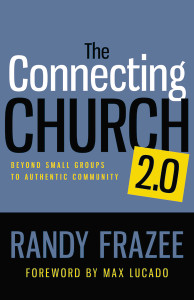 It seemed as if the honeymoon would never end. However, marriage is not as easy as you once thought. You have discovered that your spouse does have an opinion and they have the audacity to believe you are wrong. So when the honeymoon bliss turns to marital strife, where do you go for help?
It seemed as if the honeymoon would never end. However, marriage is not as easy as you once thought. You have discovered that your spouse does have an opinion and they have the audacity to believe you are wrong. So when the honeymoon bliss turns to marital strife, where do you go for help?
A strong marriage requires a strong support system which can include: parents, friends, relatives, and counselors. In order to survive, many couples need outside support or they will crumble. Although you need your parents support, asking them for help in times of conflict can become unhealthy rather quickly, and here are the reasons why.
1. Marriage requires Leaving and Cleaving
Autonomy is the ability of an individual to make their own decisions and to deal with the consequences. It is essential for the development of you and your marriage. As you mature, the relationship with your parents needs to redefined, and you should be making more decisions, and dealing with the consequences.
In a marriage, the couple forms a new unit as they leave and cleave. Genesis 2:24 states, “For this reason, I man will leave his father and mother, and cleave unto his wife, and the two will become one flesh.” One emerging adults describes this as, “when you marry your wife, she becomes the most important relationship in your life (other than with God) no matter what. I feel like going back to your parents to resolve relationship issues in marriage is a dangerous road to go down.”
It is important for new couple to develop their conflict and communication skills. One recently married emerging adult states, “Families tend to take sides and have strong opinions. We want to work out our true ideas and communication skills. …going to our parents too often splinters our relationship.” Involving your parents can also establish an unhealthy pattern for years that will be harder to break.
2. Marriages need Objective Advice
Many parents are able to give godly counsel. However, few if any parents are able to provide objective advice when it comes to their children. One parent explains, “Parents are naturally biased towards their own children. I don’t know if it’s fair to ask a parent to be objective in a situation that affects their child’s happiness.”
While counseling an EA, he responded, “I hear what you say, but my dad’s advice resonates with me.” I wanted to laugh, but I was able to refrain. There is a reason why dad’s advice resonated with him. Advice received from parents matches the values of their marriage and home. However, a new marriage requires objective counsel that would incorporate the values of both partners in the marriage relationship.
3. Forgiveness and Reconciliation
 Involving your parents can also make a small problem, into a bigger one – involving more people. Matthew 18:15-17 talks about how we are to seek resolution with the person who offended us. One emerging adults says, “It’s not hard for me to leave parents out because it’s not their place to be in the middle of my and my fiance’s relationship. That’s just plain unhealthy.” Involving other people–even parents–can lead to people taking sides and make things messier and more complicated, especially since third parties often have limited information about the conflict.
Involving your parents can also make a small problem, into a bigger one – involving more people. Matthew 18:15-17 talks about how we are to seek resolution with the person who offended us. One emerging adults says, “It’s not hard for me to leave parents out because it’s not their place to be in the middle of my and my fiance’s relationship. That’s just plain unhealthy.” Involving other people–even parents–can lead to people taking sides and make things messier and more complicated, especially since third parties often have limited information about the conflict.
Another danger of involving parents in your marital conflicts is that your parents will be hurt, but unable to participate in the healing process. This will cause feelings of hurt, and bitterness towards your spouse, even after you have been reconciled. One newlywed expresses her protection of her husband by limiting what she shares to her parents. “After I got married, I need to be protective of our relationship and respectful of him when sharing with others.”
4. Look Around
You don’t need to struggle alone. There are additional sources of encouragement including friends, mentors, counselors, and pastors. Who has God placed in your life that might be a source of encouragement to you? Each phase of marriage is different, and God might have brought them into your life in order to help you on your journey.
Getting help requires courage. I pray that this gives you the courage you need to step out and get help.








![sessums-mother-daughter-679867-h[1]](http://www.earesources.org/wp-content/uploads/2013/12/sessums-mother-daughter-679867-h1-300x271.jpg)







